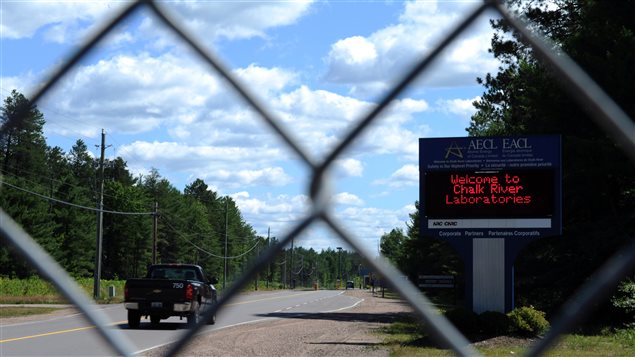Highly Enriched Uranium (HEU) currently being stored at the nuclear facility at Chalk River, Ontario, is to be transported to a facility in South Carolina for processing.
The plan stems from a 2010 agreement that would allow the United States to repatriate the radioactive material, which will cost the Canadian government about $60 million (US).
“We have stated clearly in the past that we will not stand idly by,”
Transporting the material would take about 150 truckloads, accompanied by armed guards, to travel the nearly 1,700 kilometres to South Carolina
Each shipment will consist of four 58-litre steel containers inside a larger steel and lead tube, carrying the liquid radioactive waste, which includes isotopes of cesium, iodine, strontium and plutonium, as described in a U.S. lawsuit.
The effort to prevent this repatriation via the U.S. Court failed, and now several of Canada’s First Nations, particularly those who live near the border, are voicing their fierce opposition.
The Iroquois Caucus issued press releases making their views known.
“We have stated clearly in the past that we will not stand idly by,” Chief Don Maracle of the Mohawks of the Bay of Quinte said. “The seven communities of the Iroquois Caucus stand together in the protection of Mother Earth.” he said.
“It is appalling that such reckless and irresponsible plans are given approval by the regulators and the Courts when far more sensible solutions are at hand,” added Kanesatake Grand Chief Serge Simon.
“The Iroquois Caucus is well aware that liquid of a very similar nature has been routinely solidified and stored at Chalk River since 2003,” Kahnawà:ke Grand Chief Joseph Tokwiro Norton stated.
“There are processes already in existence to ‘down-blend’ the liquid in order to eliminate highly-enriched uranium by converting it into low-enriched uranium.” he said.
Gordon Edwards, president of the Canadian Coalition for Nuclear Responsibility, agrees, and he says there is no need for the life-threatening transportation.
“Canada in fact, is the only country in the world where these transports have been required or requested in a liquid form, and we believe that that’s completely unnecessary and foolhardy.”
ListenEdwards describes the transportation option as a “make-work project for the people down at Savannah River site in South Carolina because they have the only existing facility in North America that can handle the material in liquid form.” But he says it’s not necessary to do it this way.
The International Joint Commission, a body established to protect the shared waters, is holding Great Lakes Public Meetings through March, so the issues are bound to be raised, particularly in Buffalo, New York, where the Peace Bridge, one of the possible routes for the convoy.
The following day, the IJC will hold a meeting In St. Catharines, Ontario for the people of the Niagara region.
“We strongly encourage that all persons, communities and organizations that share our concerns stand together to ensure that common sense prevails,” Akwesasne Grand Chief Abram Benedict said.
“There is no reason to continue with a plan that puts 40 million people at risk when alternatives readily exist.”







For reasons beyond our control, and for an undetermined period of time, our comment section is now closed. However, our social networks remain open to your contributions.